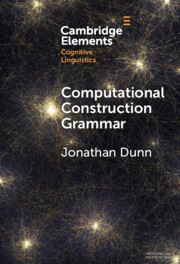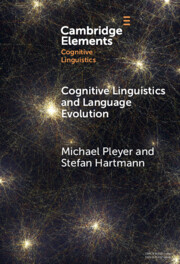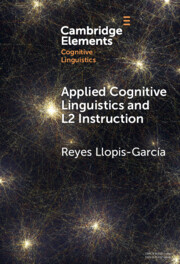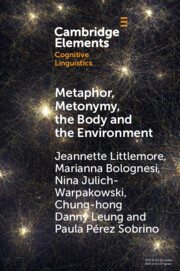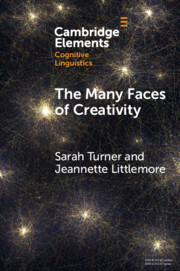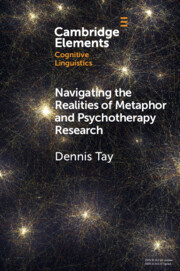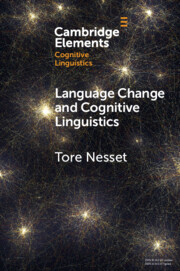About this Cambridge Elements series
Cognitive linguistics is an approach to language study that aims to explore and understand the interactions between language, cognition, and their intersections. An important underlying principle of this approach is that many, if not all, linguistic phenomena can be explained via general cognitive principles.
Grounded in the cognitive sciences, cognitive linguistics has been informed by and has also contributed to its neighbouring disciplines of psychology and philosophy. In more recent years, cognitive linguistics has begun to harness research from an expanding range of subject areas and theoretical backgrounds, and its methodological innovations have provided new tools to many branches of linguistic enquiry.
Cambridge Elements in Cognitive Linguistics is a series comprised of high-quality, updatable, and rigorous yet accessible works written by experts in the field. The aim of the series is to extend the theoretical and methodological boundaries of cognitive linguistics. To do this, it will advance and develop established areas of research in the discipline, as well as address areas where cognitive linguistics has not traditionally been explored and areas where it has yet to become well-established.
Essentially, this series aims to address the question: how can cognitive linguistics better serve its sub-disciplines, as well as the discipline as a whole?
Elements in this series
Series topics
Cambridge Elements in Cognitive Linguistics seeks to build a dynamic collection of works that both spans the spectrum of the discipline and expands beyond its current confines.
Elements will be varied in nature, including those that:
- make significant advancements to theory and to methodologies in cognitive linguistics
- employ innovative approaches to the application of cognitive linguistics to new and established areas
- are tutorial-based, offering readers an interactive platform that employ practical examples
The Series will feature Elements, including but not limited to the application of cognitive linguistics to clinical linguistics, forensic linguistics, language teaching, neurolinguistics, pragmatics, reading and literacy, among others.
The series also benefits from the innovative online platform provided by Cambridge University Press, which includes the ability to host videos, data sets, and other interactive content.
About the editors
Sarah Duffy is Senior Lecturer in English Language and Linguistics at Northumbria University. She has published primarily on metaphor interpretation and understanding, and her forthcoming monograph for Cambridge University Press (co-authored with Michele Feist) explores Time, Metaphor, and Language from a cognitive science perspective. Sarah is Review Editor of the journal, Language and Cognition, and Vice President of the UK Cognitive Linguistics Association.
Nick Riches is a Senior Lecturer in Speech and Language Pathology at Newcastle University. His work has investigated language and cognitive processes in children and adolescents with autism and developmental language disorders, and he is particularly interested in usage-based accounts of these populations.
Contact the editors
If you are interesting in writing an Element for this series, or would like more information, contact Sarah Duffy at sarah.duffy@northumbria.ac.uk or Nick Riches at nick.riches@newcastle.ac.uk
Editorial Board
• Heng Li, Sichuan International Studies University
• John Newman, University of Alberta
• Kimberley Pager-McClymont, University of Aberdeen
• Katie J. Patterson, University of Granada
• James Street, Northumbria University
• Lexi Webster, University of Southampton
• Xu Wen, Southwest University



